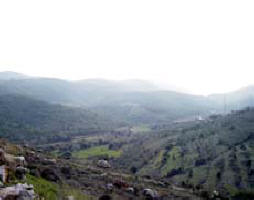 MEDROPLAN
MEDROPLAN
Mediterranean Drought Preparedness and
Mitigation Planning
website
Starting date: 2003-06-15 - Duration (months): 48
Water resources in the semi-arid countries and particularly in the Mediterranean region are limited, scarce, and difficult to predict from year to year. For these reasons, and with demand rising due to population growth and improving standards of living, water management problems are tremendous even without droughts.
Drought, which is the normal, recurrent feature of every climate, combined with water scarcity, has dramatic effects on the economies and environments of Mediterranean countries: both on the people themselves and the population’s well-being. Unfortunately, most Mediterranean countries react to drought only when it is upon them, by responding to immediate needs and providing what are often costly solutions. These countries frequently lack the permanent structures and plans to cope with drought that exist in other countries, such as the US or Australia.
Objectives
The Project's main ultimate objective is to create Guidelines for Drought Preparedness Plans. It is expected that the Guidelines will provide partner countries with an integrated approach for minimising the impacts of drought on their people and resources, and for changing the approach to drought from the current "crisis management" attitutude to a more proactive one of "risk management". The Guidelines will be adapted to the physical and socio-economic environment of the Mediterranean countries and their elaboration will follow a common methodology.
Another important objective of the project is to provide the framework for the setting up of a Drought Preparedness Network for the Mediterranean countries.
Other expected results are: the better understanding of drought, its causes, effects and impact on the economy, environment and social conditions; the transfer of know-howand technology; the exchange of information and expertise; the strengthening of institutional capabilities and awareness-raising; the mobilization and promotion of civil commitment.
The work will include:
- Map organizations and institutions working on meteorological data, hydrological data and those working on water resources management and drought mitigation
- Collection, review, study and analysis of existing information on drought and drought mitigation plans in the Mediterranean countries and around the world
- Drought Risk Analysis in six Partner countries; Drought Identification Studies, and the collection, analysis and list of Best Practices on drought mitigation in the partner countries and in other countries
- Guidelines for Drought Preparedness Plans
- Verification and testing of the Drought Guidelines on six projects in the member countries
- Preparation and proposal of a framework for setting up of Drought Preparedness Network for the Mediterranean countries
- Dissemination of guidelines and model plan to Mediterranean countries for formulating their own plans.
Geographical scope
The members of the implementation consortium are from 3 EU countries and 3 MEDA countries. This consortium groups different key stakeholders such as water basin authorities, local water authorities, water suppliers, meteorological and hydrographic institutions, ministries of agriculture, research, training and development institutions and international organizations.
Contacts
| Partners | Countries | Contacts |
| Mediterranean Agronomic Institute of Zaragoza (Project coordinator) - web |
ES | Dunixi Gabina |
| Confederación Hidrográfica del Tajo | ES | Francisco Javier
Flores |
| Canal de Isabel II | ES | Francisco Cubillo |
| Fundación Ecología y Desarrollo | ES | Víctor Viñuales |
| Universidad Politecnica de Madrid, Escuela Tecnica Superior de Ingenieros Agronomos, Dept. of Agricultural Economics and Social Sciences | ES | Dr. Ana Iglesias |
| University of Cyprus | CY | Prof. Elpida Keravnou |
| Institut Agronomique et Vétérinaire Hasan II | MA | Prof. Abdallah Ouassou |
| Direction Générale des Barrages et des Grands Travaux Hydrauliques - Ministère de l'Agriculture | TN | Louati Mohamed Hedi |
| Department of Civil and Environmental Engineering, University of Catania | IT | Antonino Cancelliere |
| NATIONAL TECHNICAL UNIVERSITY OF ATHENS | GR | S. SIMOPOULOS |
 you are not logged in
you are not logged in







